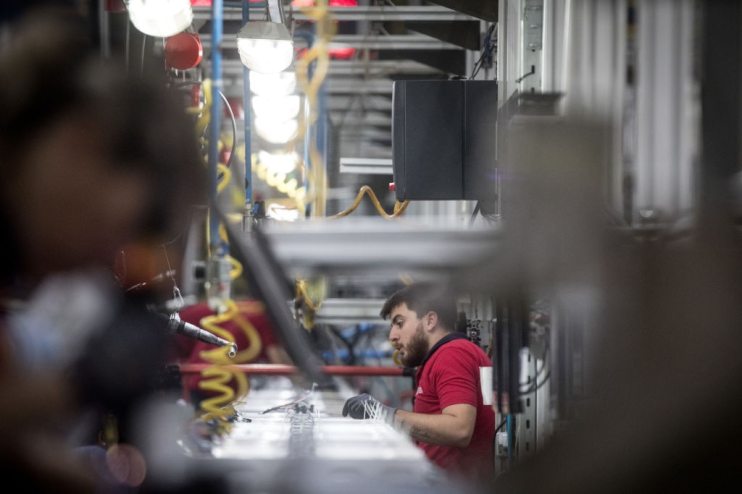British factories lift prices at record pace as Ukraine war and China lockdowns send costs soaring

Severe supply chain disruption caused by Beijing persisting with its zero-Covid tolerance policy and Russia’s war with Ukraine has sent British factories’ costs soaring at the quickest pace on record, reveals a closely watched survey released today.
Shortages of raw materials and key components used by UK manufacturers due to normal trade flows being choked by fighting in Ukraine and key ports in China being locked down to quash a spike in Covid-19 cases has swelled factories’ costs.
UK manufacturers lifted prices at the fastest pace on record, according to S&P Global’s latest purchasing managers’ index (PMI), in a bid to protect their margins.
The fresh data underscores the scale and persistence of the inflation crunch filtering through the global economy.
Separate data from S&P Global for the eurozone and the US has illustrated manufacturers across rich nations are being hit by higher costs and passing these onto consumers.
The latest PMI also indicates UK inflation is set to scale above an already 30-year high of seven per cent.
Capital goods produced by manufacturers are used across the economy, meaning consumer firms will either have to absorb thinner margins or hike prices to protect profits, adding to existing pressure on household finances.
“The inflationary situation is getting increasingly fraught. Input costs rose to the second-greatest extent in the 30-year survey history, leading to a record increase in factory gate selling prices,” Rob Dobson, director at S&P Global, said.
The figures will add to pressure on the Bank of England to hike interest rates for the fourth meeting in a row on Thursday to combat rampant inflation.
Despite the record price hike, activity among British factories is expanding, with the PMI hitting 55.8 last month, up from 55.2 in March.
A reading above 50 indicates most businesses reported growing activity.
However, demand for manufactured goods is starting to cool in response to higher prices.
“New business growth near-stalled as a slowdown in the domestic market was accompanied by a further deterioration in export orders,” Dobson added.
Firms are also stock piling components to avoid missing out on materials if supply chain disruption continues.